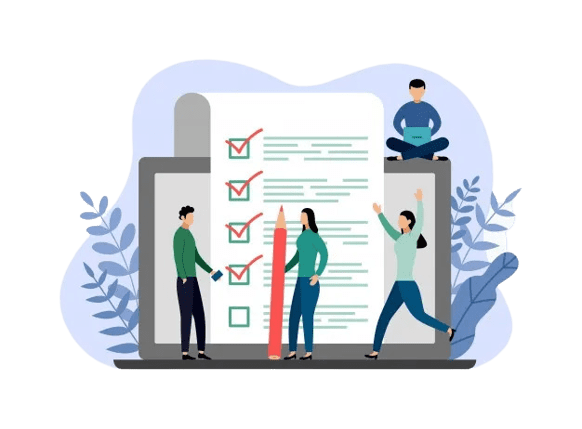What Am I Sexually?
FREE What Am I Sexually Assessment

Create a nurturing environment where identities are celebrated, struggles are understood, and healing begins.
What is What Am I Sexually Assessment?
The “What Am I Sexually” assessment is a tool designed to help individuals explore and understand their sexual orientation and preferences.
It allows users to answer a series of questions related to their feelings, attractions, and experiences, providing insights into their sexuality. The assessment aims to promote self-discovery and personal awareness in matters of sexual identity.

Who can derive advantages from this assessment of What Am I Sexually?
The “What Am I Sexually” assessment can be advantageous for individuals questioning or exploring their sexual orientation. It fosters self-awareness, providing clarity and validation for those unsure about their sexual identity. People seeking self-acceptance benefit by acknowledging diverse sexual orientations.
It aids in understanding desires and attractions in a non-judgmental way. Additionally, it serves as an educational resource for those interested in learning about different sexual orientations and identities. Mental health professionals can use it to facilitate discussions and support clients in their sexual exploration. Overall, it offers valuable insights to anyone open to understanding and embracing their sexuality.
What Am I Sexually Assessment Accuracy

The accuracy of the “What Am I Sexually” assessment depends on several factors. While it can be a useful tool for self-exploration and awareness, it should not be considered a definitive or clinical diagnosis of one’s sexual orientation.
Sexual orientation is a complex and multifaceted aspect of an individual’s identity, influenced by various factors. Online assessments may not capture the full complexity of human sexuality and individual experiences. For a more accurate understanding of one’s sexuality, professional guidance from qualified mental health experts or counselors is recommended.
Types of What Am I Sexually Assessment
Self-report questionnaires
Kinsey Scale Test
Klein Sexual Orientation Grid
The Shively-DeCecco Scale
Close Relationships Scale
Sexual Identity Scale
Handling Sexuality Issues
Handling sexuality issues requires a sensitive and understanding approach. Here are some important steps to consider:
- Self-reflection and acceptance: Encourage individuals to reflect on their feelings and attractions without judgment and to accept themselves for who they are.
- Seek professional support: Recommend seeking guidance from qualified mental health professionals or counselors who specialize in sexuality-related issues.
- Safe environment: Create a safe and non-judgmental space for open discussions about sexuality, allowing individuals to express themselves freely.
- Education and resources: Provide accurate and inclusive information about different sexual orientations and identities to foster understanding and empathy.
- Support networks: Encourage individuals to connect with supportive communities or organizations that can offer understanding and validation.
- Respect boundaries: Respect personal boundaries and choices, understanding that everyone’s journey is unique.
- Address stigma: Challenge and combat societal stigma surrounding diverse sexual orientations to create a more inclusive and accepting environment.
- Consent and communication: Emphasize the importance of clear communication and enthusiastic consent in all sexual relationships.
- Encourage self-care: Promote self-care practices to cope with any emotional challenges that may arise during the exploration of sexuality.
- Stay updated: Stay informed about evolving perspectives and research in the field of human sexuality to offer the best support possible.
Remember, handling sexuality issues requires empathy, compassion, and an ongoing commitment to support individuals on their unique paths of self-discovery and self-acceptance.

